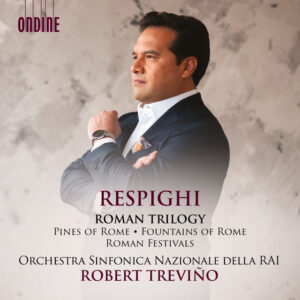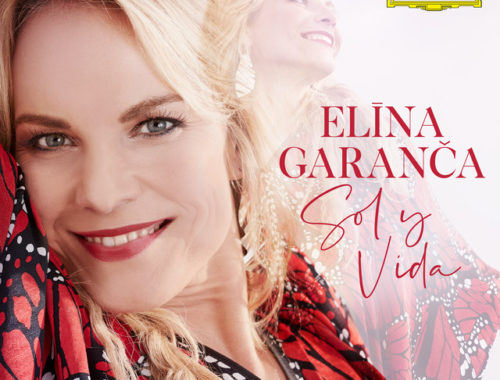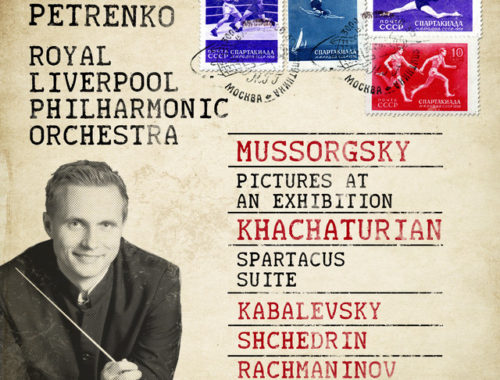GRAMOPHONE Review: Respighi Roman Trilogy – Orchestra Sinfonica Nationale della RAI/Trevino
 Respighi’s obsession with the ‘Eternal City’ is writ spectacularly large in his three symphonic evocations and maybe in some subliminal way an Italian orchestra like this one can identify better than most with the mythic elements, pictorial and spiritual. For sure these pieces have long been the envy of every composer who ever sought to underscore Roman themed epics – and some would say that’s why our own John Wilson (with his Sinfonia of London) was able to tap so effortlessly into their ‘Hollywood’ factor. In a word, lush.
Respighi’s obsession with the ‘Eternal City’ is writ spectacularly large in his three symphonic evocations and maybe in some subliminal way an Italian orchestra like this one can identify better than most with the mythic elements, pictorial and spiritual. For sure these pieces have long been the envy of every composer who ever sought to underscore Roman themed epics – and some would say that’s why our own John Wilson (with his Sinfonia of London) was able to tap so effortlessly into their ‘Hollywood’ factor. In a word, lush.
Robert Trevino is Mexican-American so he gets the heat and cooling quietude of Respighi’s water features in Fountains. The organ-buttressed Trevi fountain explosive in the midday sun flanked by the tranquillity of daybreak with the ‘Fountain of the Valle Giulia’ – all shimmering high strings, harp and celeste – and the wistful hazy fading light at the Villa Medici. For the Ria National Symphony Orchestra these images, these evocations, are just that little bit closer to home emotionally speaking. It’s something we can feel rather than hear. There’s an ‘authenticity’ about their playing.
The Pines have bags of atmosphere (with or without the dubious ‘realism’ of that infernal nightingale) and the raucous playfulness and children’s nursery rhymes of the Villa Borghese has its own kind of vitality – you really feel this orchestra knows the tunes.
In Feste Romane we are, of course, in Gladiator territory (pace Hans Zimmer) and it is here – and most especially the finale ‘La Befana’ – where Trevino really brings the disc home. The ‘Circus Games’ of the opening tableau with their ricocheting trumpet fanfares and bestial brass was something that the innovative Hollywood composer Alex North tapped into with his daringly dissonant score for Spartacus and I call it to mind here. But in the massive knees-up of the closing ‘Epiphany’ with its Shrovetide Fair allusions Trevino and his orchestra catch the coarseness and vulgarity of the tunes (great first clarinet) and that sweeping ‘back to Sorrento’ melody at the climax is all heart.
Wilson and the Sinfonia of London on Chandos are a tough act to follow in terms of detail, drama and sonic splendour – but give the hot-blooded Trevino an airing. In the final segment of ‘Roman Festivals’ he might even have the edge on Wilson.
You May Also Like

GRAMOPHONE Review: Sol y Vida – Elīna Garanča, Gran Canaria Philharmonic Orchestra/Chichon
17/07/2019
GRAMOPHONE Review: Mussorgsky Pictures at an Exhibition / Khachaturian Spartacus Suite, Etc. – Royal Liverpool Philharmonic Orchestra/Petrenko
26/02/2020

